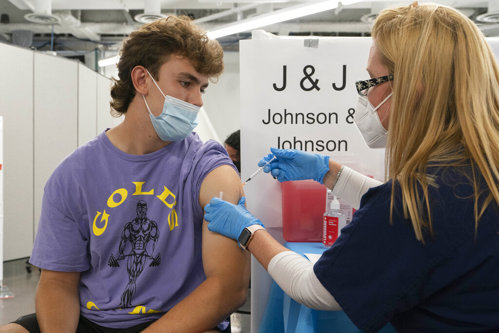"Louisiana's Surgeon General has stood up against this one-size-for-all mantra for vaccination," says Twila Brase, RN and president/co-founder of Citizens' Council for Health Freedom. "He's calling the doctors in Louisiana to get back to the patient and looking at the patient and deciding what does the patient need, so, it's a really great step for Louisiana to have a doctor who is so strong in advocating for the patient instead of the government."
Surgeon General Ralph Abraham made it known in a memo that the Louisiana Department of Health "will no longer promote mass vaccination." A department spokesperson confirmed Abraham had ordered his staff to stop engaging in media campaigns and community health fairs to encourage vaccinations.
In a separate letter posted on the department's website, Abraham decried "blanket government mandates" for vaccines and criticized the Centers for Disease Control and Prevention's COVID-19 vaccination push.
Individuals should make their own decisions about vaccinations, Abraham said.

Brase thinks other state health officials should follow Abraham's example.
"I don't know how many states have surgeon generals, but where there are surgeon generals, it would be good for every surgeon general to stand up for the patients in the state and stand up for upholding the integrity of the practice of medicine, which is to look at the patient, not to take whatever the government says and try to impose it on the patient."
The public backfire
Since the beginning of the pandemic, Brase has stressed that 'public health officials should use persuasion not coercion,' because if they use coercion, they will never again have the trust of the American people.
"What public health has done has made certain that the public will not actually listen to the comments of the public health officials in the future," says Brase. "At some point in time it may be very good for the public to listen to public health officials and what they are saying, but because of what these public health officials have done, the public is not going to listen to them at a time when perhaps the public really should."







